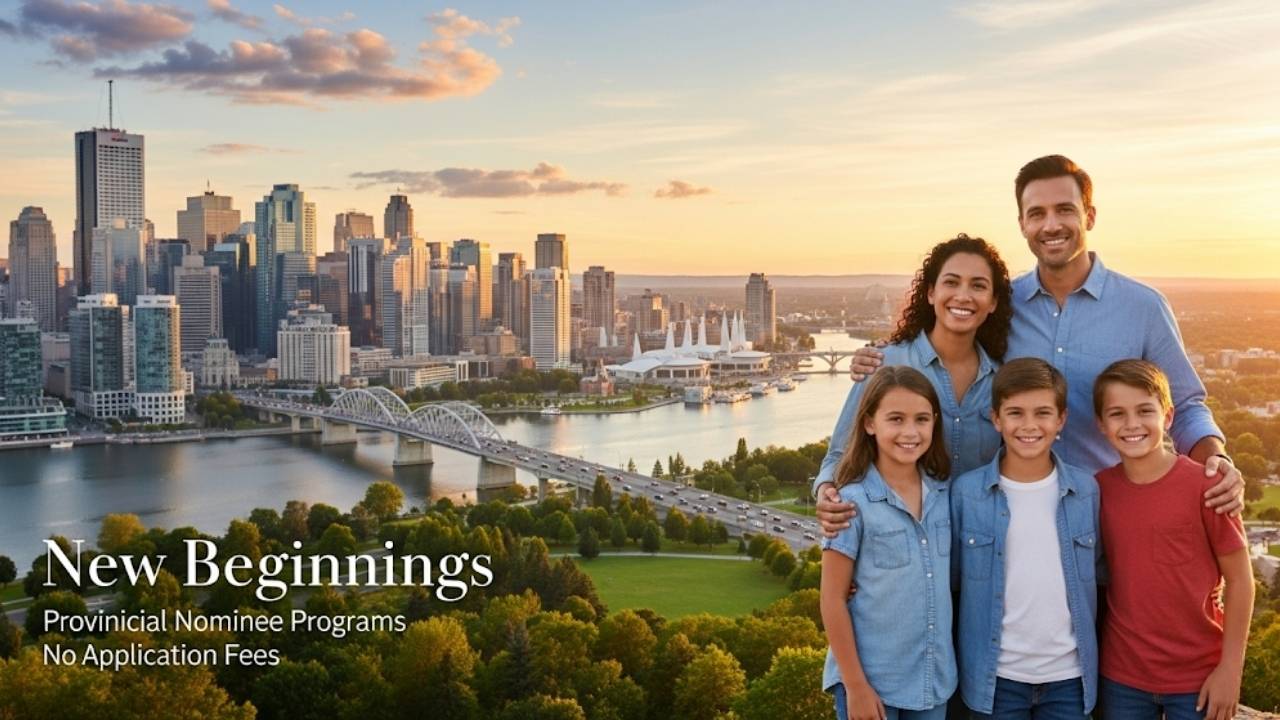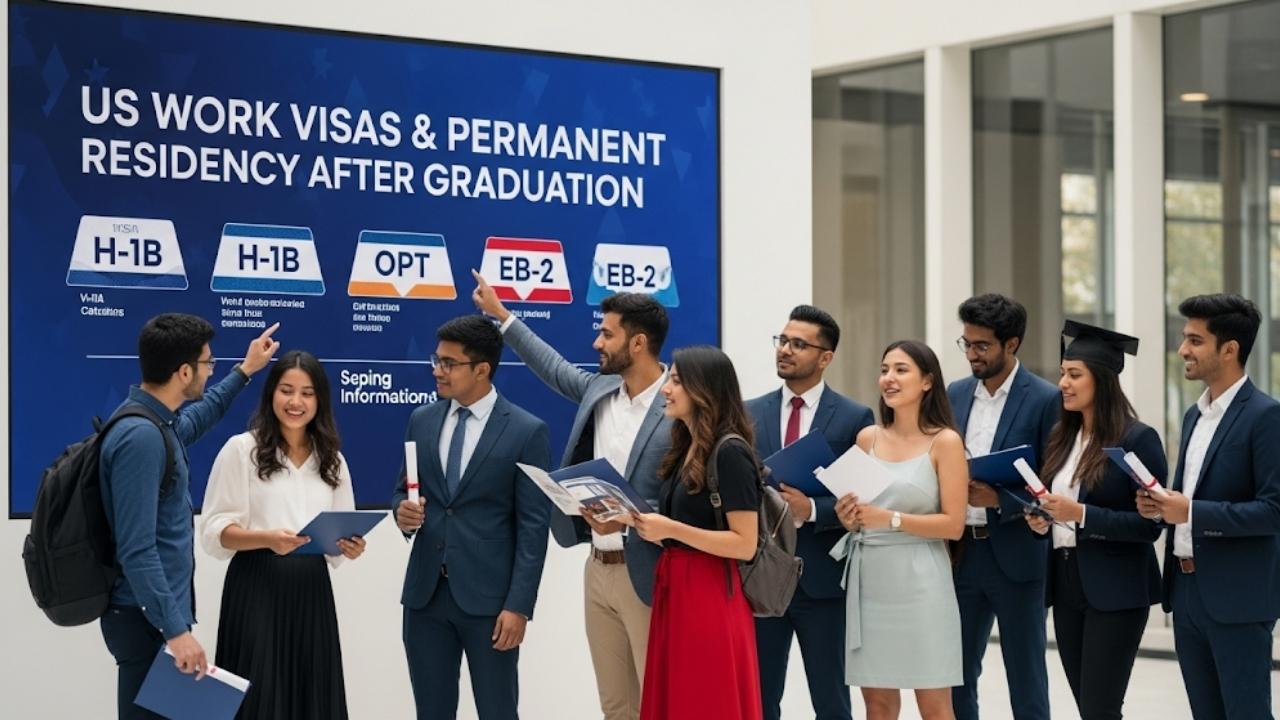The dream of reuniting with your loved ones in the welcoming expanse of Canada is a powerful one. If you’re looking to Sponsor Your Family Members to Canada in 2025, you’re embarking on a journey that embodies Canada’s commitment to family reunification. This comprehensive guide is designed to provide you with clear, actionable information to navigate this process with confidence. We understand that immigration procedures can seem complex, but with the right knowledge and preparation, bringing your spouse, partner, or children to join you in Canada is an achievable goal. Let’s explore how you can make this happen.

Understanding Family Sponsorship in Canada: The Basics for 2025
Canada’s immigration system places a high value on keeping families together. The Canada family sponsorship 2025 programs are a cornerstone of this policy, allowing Canadian citizens and permanent residents to bring their qualifying relatives to live with them permanently in Canada. This is part of the broader Canada immigration family class.
At its heart, family sponsorship is a commitment. As a sponsor, you promise to provide financial support for the basic needs of your sponsored family members for a specified period. This ensures they don’t have to rely on social assistance from the government.
Who Can You Sponsor?
While family sponsorship covers a range of relatives, this guide focuses on the most common categories, particularly relevant for those looking to build their immediate family life in Canada:
- Spouse: Your legally married partner.
- Common-law Partner: A person you are not legally married to but have been living with in a conjugal relationship for at least 12 consecutive months.
- Conjugal Partner: A person you are not legally married to or in a common-law relationship with, who lives outside Canada, and with whom you have had a binding relationship for at least one year, but significant barriers (like immigration restrictions or marital status in a country that doesn’t recognize divorce) have prevented you from living together or marrying.
- Dependent Children: Your children, or the children of your spouse/partner, who are under 22 years old and do not have a spouse or common-law partner. Children aged 22 or older may qualify as dependents if they have relied substantially on their parents’ financial support since before age 22 and are unable to support themselves financially due to a physical or mental condition. This includes adopted children.

Are You Eligible to Sponsor Your Loved Ones to Canada in 2025?
Before diving into the application, it’s crucial to determine if you, the sponsor, meet the eligibility criteria set by Immigration, Refugees and Citizenship Canada (IRCC).
Who Can Be Sponsored? Understanding the Categories in Detail
Let’s look closer at the individuals you can bring under the Canada family sponsorship 2025 streams:
- Spousal Sponsorship Canada: This applies if you are legally married. You’ll need to provide your marriage certificate and other proofs of your genuine relationship.
- Common-Law Partner Sponsorship Canada: This is for couples who aren’t married but have lived together in a marriage-like relationship for at least 12 continuous months. Evidence of cohabitation, such as joint bank accounts, lease agreements, or bills, is crucial.
- Conjugal Partner Sponsorship Canada: This less common category is for partners who, due to significant external barriers (e.g., legal restrictions in their home country, persecution), cannot live together or marry. You must prove a mutually dependent relationship of at least one year, demonstrating the same level of commitment as a marriage or common-law partnership.
- Child Sponsorship Canada: This allows you to sponsor your biological or legally adopted dependent children. You’ll need to provide birth certificates or adoption papers. The definition of a dependent child is key here (under 22 and not married/partnered, or financially dependent due to a condition).
In my experience advising applicants, one common hurdle is underestimating the amount of evidence required to prove the genuineness of a relationship, especially for spousal and partner sponsorships. It’s not just about a marriage certificate; it’s about showing a shared life.
Navigating the Application Process to Sponsor Your Family Members to Canada in 2025?
The application process involves several key stages. Staying organized and meticulous is vital for a smooth journey.
Step 1: Determine Your Eligibility and Gather Documents
First, both you (the sponsor) and your family member(s) (the applicant/principal applicant) must meet all eligibility criteria. IRCC provides comprehensive document checklists specific to the type of family member you are sponsoring and your circumstances. These checklists are your roadmap.
Commonly required documents include:
- Identity and civil status documents (birth certificates, marriage certificates, divorce certificates if applicable).
- Travel documents and passports.
- Proof of your status in Canada (e.g., permanent resident card, Canadian passport, citizenship certificate).
- Financial documents to prove you can support your family members.
- Extensive proof of relationship (for spouses/partners), such as photos together, communication logs, joint financial documents, letters from friends and family. For child sponsorship Canada, this involves birth certificates or adoption orders.
Step 2: Completing and Submitting Your Application Package
Most family sponsorship applications are now submitted online through the IRCC Secure Account portal. You will need to:
- Obtain the correct application package from the IRCC website.
- Fill out all forms completely and truthfully. Incomplete applications are a primary cause of delays or rejections.
- Include all required supporting documents, ensuring they are clear and legible.
- Pay the applicable fees online. These typically include processing fees for you and the person(s) you are sponsoring, a right of permanent residence fee, and a biometrics fee.
Step 3: After You Apply – Biometrics, Medical Exams, and Interviews
Once IRCC receives your complete application:
- Acknowledgement of Receipt (AOR): You’ll receive confirmation that your application has been received and is being processed.
- Biometrics: The person(s) being sponsored will likely need to give their fingerprints and photo (biometrics) at a designated collection point.
- Medical Examination: The sponsored family member(s) must undergo a medical examination by an IRCC-approved panel physician. This is to ensure they are not medically inadmissible to Canada.
- Interviews: In some cases, IRCC may request an interview with you and/or your sponsored family member to verify information or address concerns, particularly regarding the genuineness of a spousal/partner relationship.

It’s crucial to respond promptly to any requests from IRCC during this stage.
Key Considerations for a Successful Sponsorship Application in 2025
Beyond the basic steps, several factors can significantly impact the success of your application.
Proving the Genuineness of Your Relationship (Spouse/Partner)
For spousal sponsorship Canada and partner sponsorship Canada, this is perhaps the most scrutinized aspect. You need to convince IRCC that your relationship is genuine and was not entered into primarily for immigration purposes. Evidence can include:
- Wedding photos, photos from trips together, photos with family and friends.
- Travel itineraries for trips taken together.
- Joint lease agreements, utility bills, or bank accounts.
- Emails, chat logs, call records showing regular communication.
- Letters of support from friends and family attesting to your relationship.
Avoiding Common Pitfalls
- Incomplete Applications: Double-check (and triple-check!) that every question is answered and every required document is included.
- Misrepresentation: Always provide truthful and accurate information. Misrepresentation can lead to application refusal and a ban on applying to Canada for five years.
- Outdated Forms: Use the latest versions of forms available on the IRCC website.
- Not Responding to IRCC: Respond to any requests for additional information or action from IRCC by the given deadlines.
What to Expect in 2025: Processing Times and Staying Informed
Processing times for family sponsorship applications can vary based on the type of application, the country of residence of the applicant, the complexity of the case, and IRCC’s current caseload. You can find general processing time estimates on the IRCC website.
For 2025, it’s anticipated that IRCC will continue to prioritize family reunification. However, global events and application volumes can influence processing. The best approach is to submit a complete and strong application as early as possible and then monitor its status through your online IRCC account. Stay informed by regularly checking the official IRCC news releases and updates.
Your Canadian Dream Awaits
Sponsoring your family members to Canada is a profound act of love and commitment. While the process requires diligence and patience, the reward – building a life together in Canada – is immeasurable. By understanding the requirements, preparing thoroughly, and providing genuine information, you can navigate the path to reuniting with your spouse, partner, or children in 2025.
Your journey to Sponsor Your Family Members to Canada in 2025 starts with that first step of gathering information and preparing your application. Take that step today and move closer to welcoming your loved ones home. For the most current and detailed information, always consult the official Immigration, Refugees and Citizenship Canada website.
FAQs
Q1: Can I sponsor my spouse or partner if I am currently living outside Canada?
A1: If you are a Canadian citizen, you can sponsor your spouse, common-law partner, conjugal partner, or dependent children while living abroad, provided you can demonstrate that you will live in Canada when they become a permanent resident. If you are a permanent resident, you must be residing in Canada to sponsor.
Q2: What is the main difference between a common-law partner and a conjugal partner for sponsorship purposes?
A2: A common-law partner is someone you have lived with in a marriage-like relationship for at least 12 consecutive months. A conjugal partner is someone with whom you have a binding, marriage-like relationship for at least one year but have been unable to live together or marry due to significant barriers (like legal or immigration restrictions). The conjugal partner category is for very specific situations where cohabitation is not possible.
Q3: Do I need a lawyer or consultant to apply for family sponsorship?
A3: No, you are not required to hire an immigration lawyer or consultant. IRCC provides all the necessary forms and guides for free. However, if your case is complex or you feel overwhelmed, you may choose to seek professional advice from an authorized representative. Ensure they are licensed and in good standing with their respective regulatory body.
Q4: How long will it take to process my **Canada family sponsorship 2025** application?
A4: Processing times vary significantly based on factors such as the country of residence of the sponsored person, the type of application, the completeness of the application, and IRCC’s current operational capacity. You can check estimated processing times on the IRCC website. Submitting a thorough and well-documented application can help avoid unnecessary delays.










